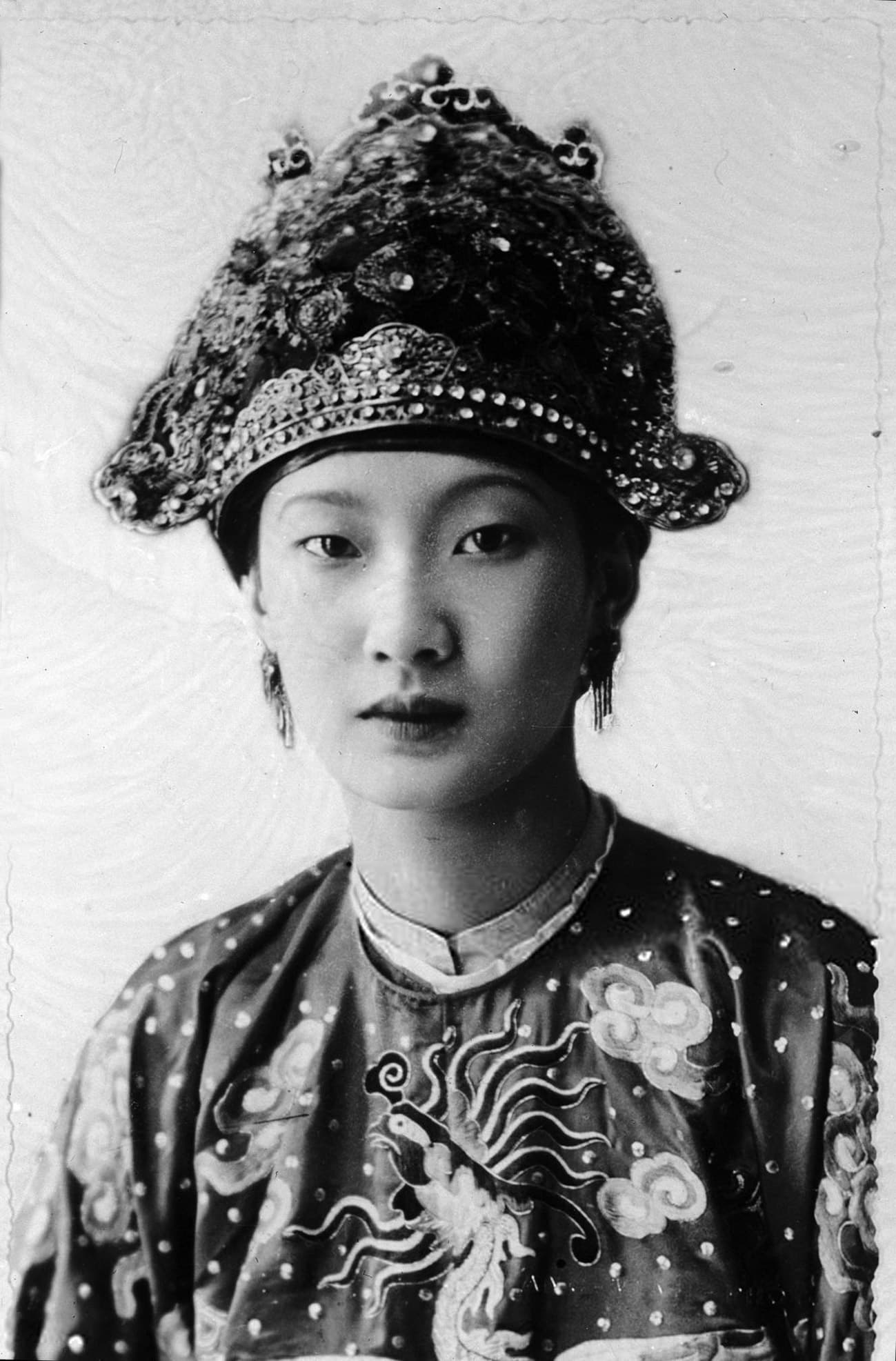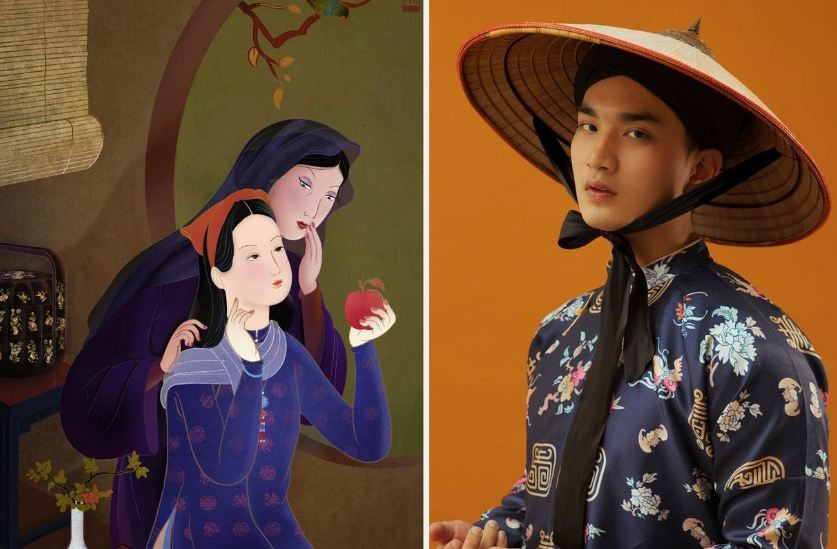The passing of Princess Anastasia of Vietnam, a member of the royal family of the Nguyen Dynasty, has sent shockwaves across the globe. Her untimely demise has left a void in the hearts of those who knew her, and her legacy will be deeply felt in the annals of Vietnamese history. Born into a life of luxury and privilege, Princess Anastasia was destined for greatness, yet her life was marked by both tragedy and triumph.
As the world mourns the loss of this remarkable individual, it is essential to reflect on her remarkable journey. From her early days as a member of the royal family to her later years as a prominent figure in Vietnamese society, Princess Anastasia left an indelible mark on the country. Her life was a testament to resilience, courage, and the unwavering dedication to her heritage. As we bid farewell to this remarkable princess, we honor her memory by celebrating her remarkable life and the enduring impact she had on those around her.
what is the significance of vietnamese princess and in history
 The Vietnamese Princess, specifically Princess Lieu Hanh, holds significant cultural and historical importance in Vietnamese society. Her cult, which began as a local sect appealing to women in the 16th century, has evolved over time to transcend geographical and gender boundaries, remaining a prominent aspect of Vietnamese popular religion to this day. This enduring influence is a testament to her remarkable journey and the various roles she has played in Vietnamese history.
Princess Lieu Hanh's cult has been associated with diverse ideologies, including feminism, nationalism, Buddhism, and Daoism, reflecting the changing political agendas of successive generations of intellectuals and officials. Her cult has also been used by rulers to serve various purposes, such as promoting cultural values or controlling popular religious practices. This complex interplay between popular religion and state authority is a central theme in the book "Cult, Culture, and Authority: Princess Lieu Hanh in Vietnamese History" by Olga Dror, which explores the historical development and significance of Princess Lieu Hanh's cult.
The significance of Princess Lieu Hanh in Vietnamese history extends beyond her religious following. Her cult has been a powerful symbol of Vietnamese identity and culture, influencing various aspects of Vietnamese society, including literature, politics, and social norms. Her enduring popularity and the multifaceted nature of her cult make her a fascinating subject for scholars and a significant figure in Vietnamese cultural heritage.
The Vietnamese Princess, specifically Princess Lieu Hanh, holds significant cultural and historical importance in Vietnamese society. Her cult, which began as a local sect appealing to women in the 16th century, has evolved over time to transcend geographical and gender boundaries, remaining a prominent aspect of Vietnamese popular religion to this day. This enduring influence is a testament to her remarkable journey and the various roles she has played in Vietnamese history.
Princess Lieu Hanh's cult has been associated with diverse ideologies, including feminism, nationalism, Buddhism, and Daoism, reflecting the changing political agendas of successive generations of intellectuals and officials. Her cult has also been used by rulers to serve various purposes, such as promoting cultural values or controlling popular religious practices. This complex interplay between popular religion and state authority is a central theme in the book "Cult, Culture, and Authority: Princess Lieu Hanh in Vietnamese History" by Olga Dror, which explores the historical development and significance of Princess Lieu Hanh's cult.
The significance of Princess Lieu Hanh in Vietnamese history extends beyond her religious following. Her cult has been a powerful symbol of Vietnamese identity and culture, influencing various aspects of Vietnamese society, including literature, politics, and social norms. Her enduring popularity and the multifaceted nature of her cult make her a fascinating subject for scholars and a significant figure in Vietnamese cultural heritage.what is the story behind princess lieu hanh's cult
 The story behind Princess Lieu Hanh's cult is rooted in Vietnamese mythology and folklore. According to accounts, Princess Lieu Hanh was a historical figure who lived during the 16th century. Born as the daughter of the Jade Emperor, she was destined for greatness and was known for her beauty and kindness. Her personal cult was created by women in the Nam Dinh Province, in the village of Van Cat, who were desperate for land and water. The cult was initially a local phenomenon but eventually spread across Vietnam, transcending geographical and gender boundaries.
The cult's origins are tied to the legend of Princess Lieu Hanh's life. She was said to have been born to a righteous man, Le Thai Cong, and his wife. After her death at the age of 21, her spirit returned to heaven but soon became homesick for her time on earth. The Jade Emperor allowed her to return, and she took on a second incarnation as Princess Lieu Hanh. She married Dao Lang but returned to heaven after a short while.
Princess Lieu Hanh's cult is characterized by its association with fertility, motherhood, and childbirth. Although not exclusively linked to fertility, she is often invoked by women seeking to conceive due to her benevolent nature and compassionate spirit. Her cult has been used by rulers to serve various purposes, such as promoting cultural values or controlling popular religious practices.
The cult's popularity and significance in Vietnamese history are reflected in its enduring influence on various aspects of Vietnamese society, including literature, politics, and social norms. The story of Princess Lieu Hanh has been retold and reinterpreted over time, reflecting the changing political agendas of successive generations of intellectuals and officials. Her cult has been a powerful symbol of Vietnamese identity and culture, making her a fascinating subject for scholars and a significant figure in Vietnamese cultural heritage.
The story behind Princess Lieu Hanh's cult is rooted in Vietnamese mythology and folklore. According to accounts, Princess Lieu Hanh was a historical figure who lived during the 16th century. Born as the daughter of the Jade Emperor, she was destined for greatness and was known for her beauty and kindness. Her personal cult was created by women in the Nam Dinh Province, in the village of Van Cat, who were desperate for land and water. The cult was initially a local phenomenon but eventually spread across Vietnam, transcending geographical and gender boundaries.
The cult's origins are tied to the legend of Princess Lieu Hanh's life. She was said to have been born to a righteous man, Le Thai Cong, and his wife. After her death at the age of 21, her spirit returned to heaven but soon became homesick for her time on earth. The Jade Emperor allowed her to return, and she took on a second incarnation as Princess Lieu Hanh. She married Dao Lang but returned to heaven after a short while.
Princess Lieu Hanh's cult is characterized by its association with fertility, motherhood, and childbirth. Although not exclusively linked to fertility, she is often invoked by women seeking to conceive due to her benevolent nature and compassionate spirit. Her cult has been used by rulers to serve various purposes, such as promoting cultural values or controlling popular religious practices.
The cult's popularity and significance in Vietnamese history are reflected in its enduring influence on various aspects of Vietnamese society, including literature, politics, and social norms. The story of Princess Lieu Hanh has been retold and reinterpreted over time, reflecting the changing political agendas of successive generations of intellectuals and officials. Her cult has been a powerful symbol of Vietnamese identity and culture, making her a fascinating subject for scholars and a significant figure in Vietnamese cultural heritage.what are some of the beliefs associated with princess lieu hanh's cult
The cult of Princess Lieu Hanh is associated with various beliefs, including: Fertility and Childbirth: Although not exclusively linked to fertility, Princess Lieu Hanh is often invoked by women seeking to conceive due to her benevolent nature and compassionate spirit. Her association with motherhood and childbirth stems from her benevolent nature and compassionate spirit. Earth Realm Governance: In the Four Palaces belief of the Đạo Mẫu, Princess Lieu Hanh governs the Earth realm and represents the Heaven realm on behalf of Mẫu Cửu Trùng Thiên. Heavenly Spirit and Mother Goddess: Princess Lieu Hanh is revered as a heavenly spirit and Mother Goddess, reflecting her significant role in Vietnamese mythology and popular religion. Reincarnation: The legend of Princess Lieu Hanh involves her reincarnations, with her spirit returning to earth multiple times, each time taking on a new form and role in Vietnamese society. Blessings and Curses: According to the legend, Princess Lieu Hanh has the ability to bless those who are good and curse those who are not, reflecting her powerful and influential presence in Vietnamese culture. Protection and Intervention: Her followers believe that Princess Lieu Hanh can intervene in their lives, offering protection and guidance, particularly in matters related to family, marriage, and childbirth. These beliefs are deeply rooted in Vietnamese mythology and folklore, reflecting the enduring influence of Princess Lieu Hanh's cult on Vietnamese culture and society. |
| Emperor Bảo Đại of Vietnam and his eldest daughter Princess Phương Mai at the Italian Formula 1 Grand Prix at Monza, 1955. Photograph (c) Mario De Biasi/Mondadori Portfolio via Getty Images. |
Princess Phương Mai of Vietnam, Dowager Duchess di Addis Abeba, died on 16 January 2021 at Louveciennes. The princess was eighty-three years-old. A widow since 1992, Phương Mai had lived with her sister Princess Phương Dung in Louveciennes for quite some time.
 |
| Left to right: Empress Nam Phương, Crown Prince Bảo Long, Dowager Empress Рoan Huy holding her granddaughter Princess Phương Mai, and Emperor Bảo Đại. Photograph circa 1937/1938. |
 |
| The last Empress of Vietnam with her five children. |
May the Princess Rest in Peace.
As we conclude our exploration of the passing of Princess Lieu Hanh, we are reminded of the profound impact she had on Vietnamese culture and history. Her legacy continues to inspire and influence generations, transcending time and geographical boundaries. The story of her life and the significance of her cult serve as a testament to the power of faith and the enduring importance of cultural heritage. It is our hope that this article has provided a comprehensive and informative overview of Princess Lieu Hanh's remarkable journey, shedding light on the complexities and nuances of her cult and its enduring influence on Vietnamese society.
As we bid farewell to this remarkable princess, we are left with a deeper appreciation for the rich cultural tapestry that is Vietnamese history. The story of Princess Lieu Hanh serves as a poignant reminder of the significance of preserving and honoring cultural traditions, ensuring that the lessons of the past continue to guide us towards a brighter future. We hope that this article has not only informed but also inspired our readers to delve deeper into the fascinating world of Vietnamese history and culture. May the memory of Princess Lieu Hanh continue to inspire and guide us, and may her legacy serve as a beacon of hope and cultural preservation for generations to come.




No comments:
Post a Comment